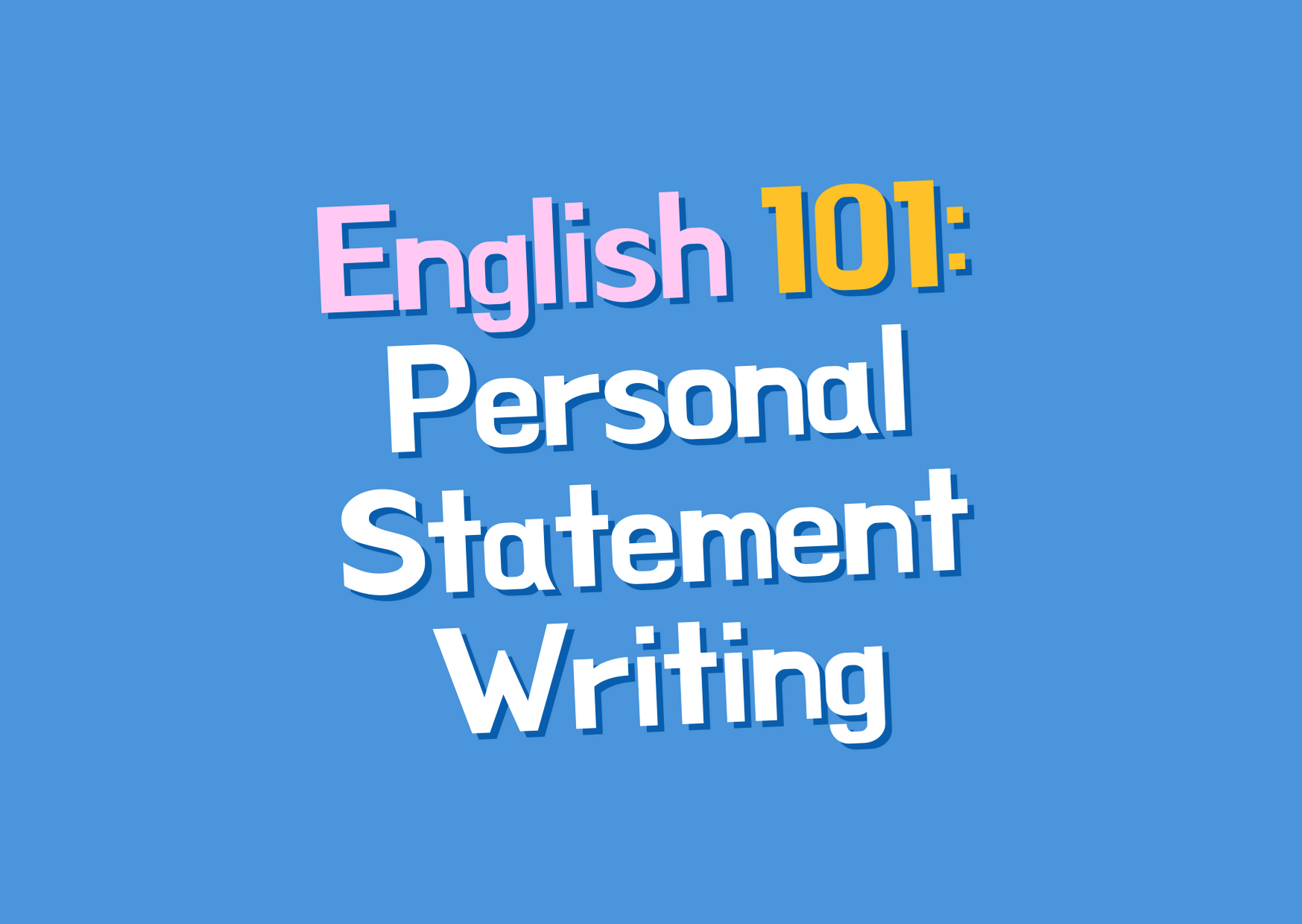How to Write an English Personal Statement Worthy of Oxbridge!
Are you dreaming of pursuing English at Oxford, Cambridge or a top Russell Group University? This comprehensive guide equips you with top tips for crafting an English personal statement that truly stands out. Learn how to showcase your diverse literary interests, structure your personal statement or tailor your statement for Oxbridge.
When applying to university, your personal statement is your best opportunity to showcase what motivates you to study the subject you are applying for and why you are suited to study it. You can do this by providing evidence of your interest: how have you gone beyond the curriculum to satisfy questions which reach past the subject at A Level?
Interviewers for English at university will be looking for students who have an insatiable curiosity for learning and developed interests in various areas of the subject. They will also be looking for candidates who have the analytical skills and academic rigour required for success at university. And, of course, you’ll be expected to demonstrate evidence of substantial reading; a successful English personal statement will provide a starting point for an interview discussion, so gesture towards a range of different texts which you are prepared to discuss at length. Don’t shy away from making a provocative statement, as long as you are prepared to support any claim you make: independent, fresh responses to texts will generate a positive response.
Tips for your English Literature Personal Statement
The key tips to bear in mind when writing a personal statement are: be truthful, be ambitious and don’t undersell yourself. This is an opportunity to show off what you’re good at! Don’t hold back from writing about times when you have excelled (for example, winning an English essay competition) but don’t distort what you’ve done either.
Don’t mention books which you haven’t read all the way through. If you feel like your breadth of reading might be lacking, it’s a good idea to do some extension reading in the months leading up to applying for university, so that when it comes to writing your personal statement, you’ll have a wide variety of texts to choose from.
Showcase your literary diversity: Make your personal statement stand out by referencing a range of text forms, from classic novels to contemporary poetry, thought-provoking essays, iconic plays, and compelling prose. This demonstrates your passion for English literature across different mediums and eras.
Embrace the breadth of English literature: Convey your enthusiasm for the subject by including references to works from various eras. Showcase your appreciation for not only contemporary literature but also texts from older periods, like the Medieval age, the Renaissance, and beyond (whilst staying true to your interests). This illustrates your readiness to explore and engage with the rich tapestry of English literature throughout history. This is particularly important when applying for a course like Oxford English Language Literature as the course modules are chronological, spanning Old English (e.g. Beowulf) through to contemporary texts. An admissions tutor is likely to be impressed if you therefore have some appreciation for a range of literary eras.
Craft a narrative with a few (e.g. 3) focused areas of interest: Instead of providing a superficial overview of various topics that interest you, choose say three specific areas of English literature that genuinely intrigue you. These could be thematic, like postcolonial literature, feminist literature, or gothic literature. For each area, go in-depth by referencing a key book or text you've read, a relevant piece of literary criticism (this isn’t required, but can be good to include!), and your thoughtful analysis of the text or critic's perspective. Then, connect these three areas to create a compelling narrative thread that showcases your passion, analytical skills, and the trajectory of your literary exploration. This approach not only demonstrates your commitment but also provides a captivating structure for your personal statement (See the English personal statement posted below as an example of this!)
How to Structure Your English Personal Statement
The word count for personal statements is quite limited, so it’s important to use every sentence effectively. Don’t repeat yourself and don’t include information which isn’t relevant to your application. When applying for English, there are certain areas which should be addressed in your personal statement, so here is a guideline of how one might structure the personal statement to ensure that all of these areas are mentioned.
Introductory paragraph:
What is your motivation to study English? Be specific: what do you want to explore at university? What is distinctive about studying literature that makes it worthwhile? Ensure you talk about what motivates your study of the subject now, not a catalyst from your childhood as, even if it may be true, the interviewer will find it clichéd and less relevant.
Main body of the personal statement:
Devote at least a paragraph to talking about specific areas of interest within the subject. What excites you most? For example, do you have a particular fascination with performance studies or postcolonial theory? Indicate that you have opinions and preoccupations within the discipline.
Mention a range of texts which have interested you: ensure that you’ve mentioned at least one play, prose text and piece of poetry (ideally). It’s also a good idea to show that you’ve engaged with secondary texts, for example a work of literary criticism or a book covering the historical background of a period of literature you’ve studied.
Show that you have an active interest in the subject: Have you sought out performances of plays, special lectures or essay competitions? These will all reveal that you’ve gone out of your way to immerse yourself in your subject already, and this is a very appealing trait in a prospective university candidate.
Showcase your skills: Don’t just name-drop texts but say something incisive and persuasive about them. This could involve discussing what links together works by authors of the same period or what defines the work of a single author. Demonstrate your ability to analyse texts effectively, because this is the most important skill which you will use studying English at university level.
Concluding your personal statement:
The personal statement isn’t long enough to talk at length about extracurricular hobbies and activities, so don’t let these take up too much space (a few lines maximum). However, it is a good idea to mention what you do outside your subject to present yourself as a well-rounded candidate. Therefore:
You could mention one or two of your other A Level subjects, perhaps describing how they have enhanced your study of English. This will be particularly convincing if you have studied History or a foreign language at A Level.
Mention any extracurricular activities which make you stand out. Do you play a musical instrument, and if so, to what level? If you’re involved in sport, do you play in a team? Don’t write at length about this: try to contain this information within one sentence.
Mention any prizes or roles of responsibility which you have had at school, including any clubs that you might organise, such as the school newspaper or student council.
Conclude your personal statement by returning to your aptitude for studying the subject. Which core skills do you possess which will equip you to excel at degree level? It’s important to strike a balance between enthusiasm for the subject and evidence of skills.
Applying to Oxford or Cambridge (Oxbridge)? Here's What You Should Also Do
Difference Between Oxford English Language and Literature BA & Cambridge English BA
The University of Oxford and the University of Cambridge, collectively referred to as Oxbridge, are globally renowned for their exceptional academic courses. In the domain of English studies, both universities offer distinct programmes: Oxford's English Language and Literature and Cambridge's English course. In this section, we will precisely explore the key differences between these programmes, highlighting their unique approaches and focus, to ensure you cater your Oxbridge English personal statement to your Number 1 choice of university.
Writing an Oxford English Language and Literature Personal Statement
Oxford's English Language and Literature course is renowned for its extensive scope, offering a comprehensive exploration of English writing from its origins in Anglo-Saxon England to contemporary works. It provides the unique opportunity to examine literature in English on a global scale, encompassing texts from various parts of the world and originally penned in different languages. The course allows students to tailor their studies to match their interests through core papers, dissertation topics, and special options. Some past options include delving into Literature and revolution, Postcolonial literature, Writing lives, Old Norse, Tragedy, and Film criticism, fostering a dynamic and diverse learning experience.
At the University of Oxford, the course titled "English Language and Literature" is designed to provide students with a comprehensive understanding of both the language and literary aspects of the English discipline. It is therefore important that you ideally reference both aspects in your Oxford English personal statement. Even if the other courses you are applying for do not have the Language element, anything you include will still be relevant to the study of Literature (you can entwine the two).
1. Integration of Language and Literature:
Oxford's course integrates the study of the English language with a deep exploration of literary works. Students examine the language's structure, history, and linguistic components while also engaging with a wide array of literary genres and periods.
2. Language Analysis and Literary Critique:
The curriculum at Oxford hones students skills in language analysis, gives them exposure to linguistic theories, and literary critique. Students learn to analyse the nuances of language and its application in literature, fostering critical thinking and analytical skills.
3. Historical and Cultural Context:
Oxford places significant importance on studying literature within its historical and cultural contexts. Students gain insights into the societal influences that shaped literary works, providing a holistic understanding of the subject.
Writing a Cambridge English Personal Statement
Cambridge's English degree course offers a well-rounded curriculum that combines a strong foundation in English literary works with an opportunity to explore various art forms, including music and film in relation to literature. Furthermore, it delves into literature's connections with intellectual traditions such as philosophy, art history, and politics. In Year 1 (Part IA), students undertake compulsory papers in Practical Criticism and Critical Practice, along with an assessment of Shakespeare through a portfolio of essays. Year 2 (Part IB) introduces compulsory and optional papers spanning different literary periods from Early Medieval Literature to the 20th century. In Year 3 (Part II), students engage with compulsory papers in Practical Criticism and Critical Practice II, explore Tragedy across ages, and undertake a dissertation. Additionally, they can choose from a wide array of optional papers that evolve yearly, covering diverse topics such as Chaucer, American Literature, Visual Culture, and more.
Here’s how to tailor your personal statement to align with these features:
Interdisciplinary Approach: Cambridge's English course places a strong emphasis on interdisciplinary connections. In your personal statement, you could showcase your readiness to explore literature's intersections with other fields such as philosophy, art history, and politics. Mention any relevant experiences or readings that demonstrate your interest in these areas and how they relate to literature.
Exploration of Other Art Forms: Cambridge offers the opportunity to delve into other art forms, including music and film, in relation to literature. Highlight your passion for these art forms and their connections to literature. You could discuss a specific instance where you've analysed how music or film enhances the understanding of a literary work, for example, or how these art forms can provide fresh perspectives on literature.
Critical Thinking and Intellectual Traditions: Cambridge's English course encourages critical thinking and engagement with intellectual traditions. In your personal statement, you could emphasise your analytical abilities by discussing a piece of literature or a critical theory that challenged your thinking. Show how your engagement with intellectual traditions has shaped your approach to literature.
Broad Range of Literature: Mention your fascination with the diverse range of literary works in the Cambridge curriculum, spanning different eras and cultures. Highlight any books or authors that have particularly resonated with you, and explain how they have influenced your literary interests.
How is the Personal Statement Used in Oxbridge English Interviews?
Your personal statement offers admissions tutors a glimpse into your academic journey, showcasing your passion for English Literature or English Language. It acts as a crucial tool for them to assess your commitment to the subject and your ability to articulate your thoughts coherently and persuasively.
Through your personal statement, you have the opportunity to exhibit your enthusiasm for the subject. Your engagement with literary works, language theories, and academic experiences should shine through, portraying a genuine and dedicated interest in the field. Highlighting specific books, theories, or authors you admire and discussing how they have influenced your academic pursuits adds depth to your statement.
Admissions tutors use your personal statement to evaluate how well your academic goals align with the structure and ethos of the course you're applying for. Articulate why you believe the particular course at the university is the right fit for you. Demonstrating an understanding of the curriculum and emphasising how it will help you achieve your academic and career aspirations is key.
During the interview, the personal statement often serves as a starting point for discussion. The interviewers may delve into topics you've mentioned in your statement, seeking deeper insights into your thought processes and motivations. Therefore, it is essential to be well-prepared to expand on the ideas presented in your personal statement, providing a more comprehensive understanding of your perspective.
Looking for ideas for English personal statement content?
We have built out an entire co-curricular platform, Minds Underground, for university applicants to use as evidence for their wider subject exploration. A few ideas:
Our English Literature Summer School allows students to broaden their horizons in literature, to consider authors and theorists from across the globe. classes are hosted by our Oxbridge-educated tutors, from a Fellow at all Soul’s College, Oxford, to published authors and Master’s and PhD researchers specialising in English Lang & Lit
Research Projects: E.g. ““Ways of Seeing": Exploring Word, Image and Ideology with a Cambridge Master's English Researcher and Multidisciplinary Artist” (Typically 1 month, 5 project tutorial sessions)
Looking for an English Personal Statement Writing Tutor or Support For Your Wider Oxbridge English Application?
English Personal Statement Tutoring
U2 Tuition’s Oxbridge-educated tutors have a close insight into what admissions tutors like to see in an English personal statement, and can help students to convey their skills, motivations, and long term goals, in order to stand out from other applicants. The statement should be the candidates own work, but our mentors will provide direction and guide you through the process of content building and writing. We offer offline drafting as well as tuition sessions.
Oxbridge English Tutoring
We have a large team of Oxbridge-educated English mentors including 1st Class, Master’s and PhD level graduates, who support students through each stage of the application process, including personal statement, ELAT and interview preparation.
The Process:
1) We suggest an Oxbridge English graduate as a mentor and send their full CV for review. Our mentors are deeply familiar with the admissions process to study English at the University of Oxford, Cambridge, as well as top UK Universities such as UCL, and are well-placed to guide you through personal statement curation, the entrance exam and interview process. We may suggest a range of application tutors to choose from with slightly differing rates depending on qualifications and level of experience.
2) We typically suggest beginning with a 1.5 hour diagnostic session, where the mentor will informally assess the student’s current performance level for application, including test and interview. Following this, we issue a report with feedback, and structure a plan to best prepare.
3) U2’s approach for regular English application sessions: The main focus of tutorial sessions will be to explore material that can be discussed in the personal statement and at interview - this may sometimes stretch from A-Level standard to First Year Undergraduate. Mentors ensure each student refines their literary interests, and is exposed to a range of literary eras, approaches and new concepts, guiding students in their reading and wider subject exploration. Together, we build a case for the student, solidifying the stance and direction they will take during interview and honing skills for the ELAT if applicable.
Frequency of sessions can be decided between student and mentor. Students can take either ad hoc sessions, or we structure a full programme for preparation, which may include further co-curricular opportunities such as our research projects, English Literature summer school and Oxbridge mock interview days. Honing the skills necessary to succeed for Oxbridge ideally requires long-term preparation and mentoring presents a wonderful opportunity to learn from some of the very best Oxbridge has produced.
Sessions from £75/h + VAT.




